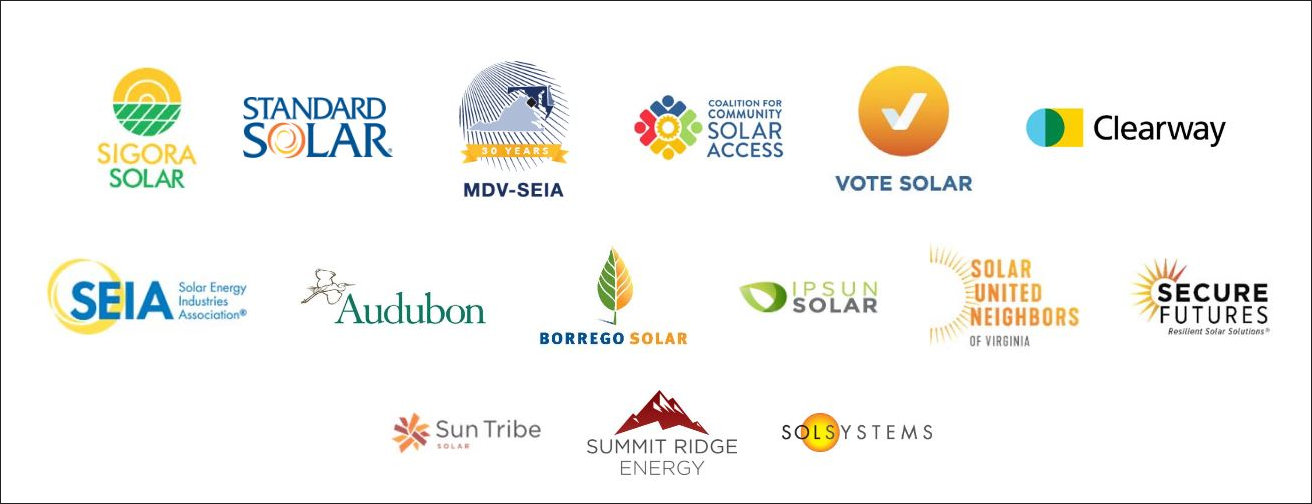by James A. Bacon
It may be a while before the solar industry matches the clout of Dominion Energy and Appalachian Power, but it has come into its own as a lobbying and political player. The new reality hit me forcefully when the Virginia Solar for All Campaign issued a statement applauding the advance of the Virginia Clean Economy Act out of committee yesterday.
“The House of Delegates is taking bold action on energy, advancing legislation that will create a clean energy economy, put Virginia on a path to 100% clean energy, and eliminate harmful carbon emissions to turn back the tide against climate change,” said Rachel Smucker, Virginia Policy and Development Manager for the Maryland Delaware Virginia Solar Energy Industries Association (MDV-SEIA).
Distributed solar generation — small-scale rooftop and community projects — is a key component of the bill, which would mandate a 100% renewable electric grid by 2050. At present, distributed solar is capped at 1% of Dominion’s peak load forecast. Lifting that cap, expanding opportunities for Power Purchase Agreements (PPAs), and mandating 100% renewable energy sources would open up multibillion-dollar market opportunities for solar companies.
The collection of logos seen above, representing members of the Virginia Solar for All Campaign, does not even account for all the solar players in the state.
As with every industry coalition, it is useful to follow the money.
At present, the main role of solar companies is to develop solar projects — identify sites, acquire land (often requiring the assembly of multiple parcels), obtaining state and local permits (sometimes in the face of stiff local opposition), erecting solar panels, and then selling the projects to a regulated utility. In Virginia, for the most part, that has meant selling to Dominion, which does not want to get into the messy and contentious business of developing solar farms itself. While developing solar sites can be profitable, the amount of capacity that solar businesses can own, operate and re-sell is capped at a low level. The other avenue for developing solar is to build “net-metered” solar (in which the owner of solar panels can sell surplus electricity to a utility) up to 1% of total forecast peak demand. That limit has been reached, so without a change in the law, there is no more room for expansion.
The Virginia Clean Economy Act would turbo-charge the independent solar industry in at least three ways over the short term. It would increase the net-metering cap to 6%, boost the power-purchase agreement cap from 57 megawatts (Dominion and Apco) to 500 megawatts, and create a 900-megawatt carveout for distributed generation. Enactment of the bill would represent a massive boon to the state’s solar industry.
A Virginia Commonwealth University study commissioned by Virginia Solar for All Campaign says that Virginia currently has less than 100 megawatts of distributed solar, far below that of neighboring states. Installing, 2,500 megawatts would equal 3% of statewide electricity use and would increase the number of solar-related jobs by roughly 10 times.
Excessive reliance upon intermittent energy sources like solar and wind could create grid-stability issues. But the VCU study contends that Virginia can get up to 19% of its energy from “distributed” (decentralized, small-scale) solar and 30% of its total electricity from renewable energy sources without creating significant operating issues. I can’t imagine that Dominion and Apco, both of which are regulated monopolies, are happy about the prospect of so much competition, and lawmakers need to give serious thought to the consequences for the utilities, which are responsible for ensuring the integrity and reliability of the electric grid. However the debate evolves, it seems pretty clear that solar corporations and nonprofits will be playing a bigger role in Virginia’s economy and exercising more clout in the General Assembly.



